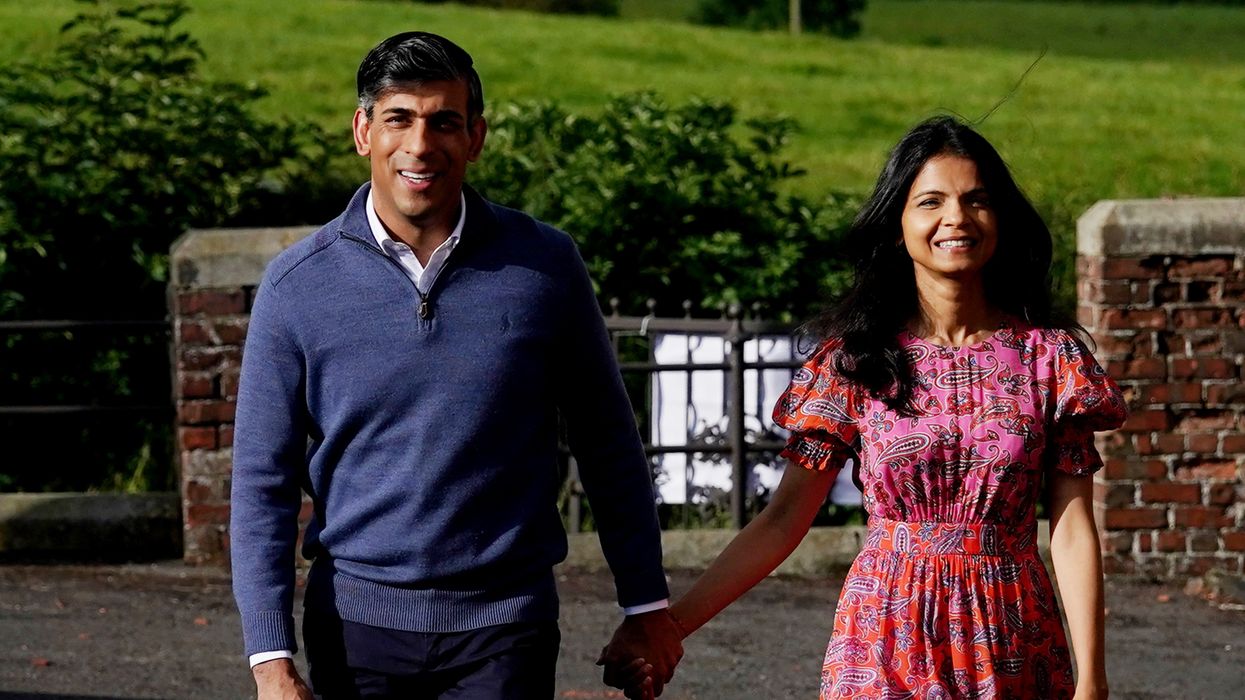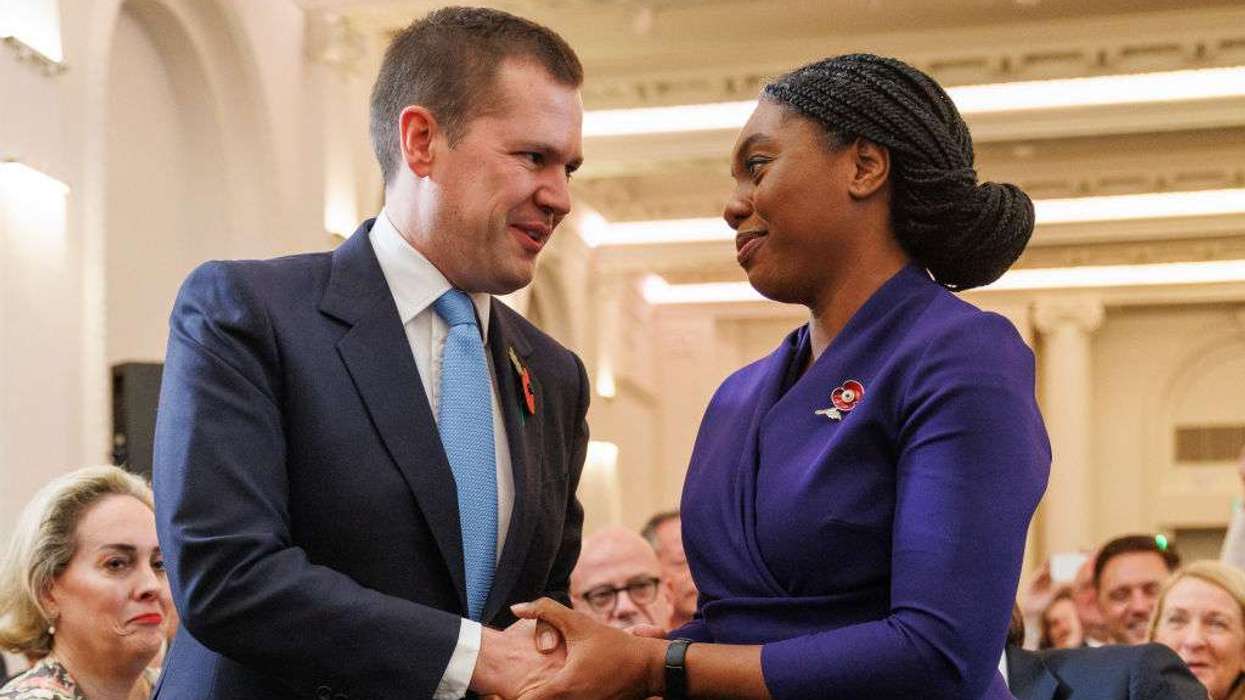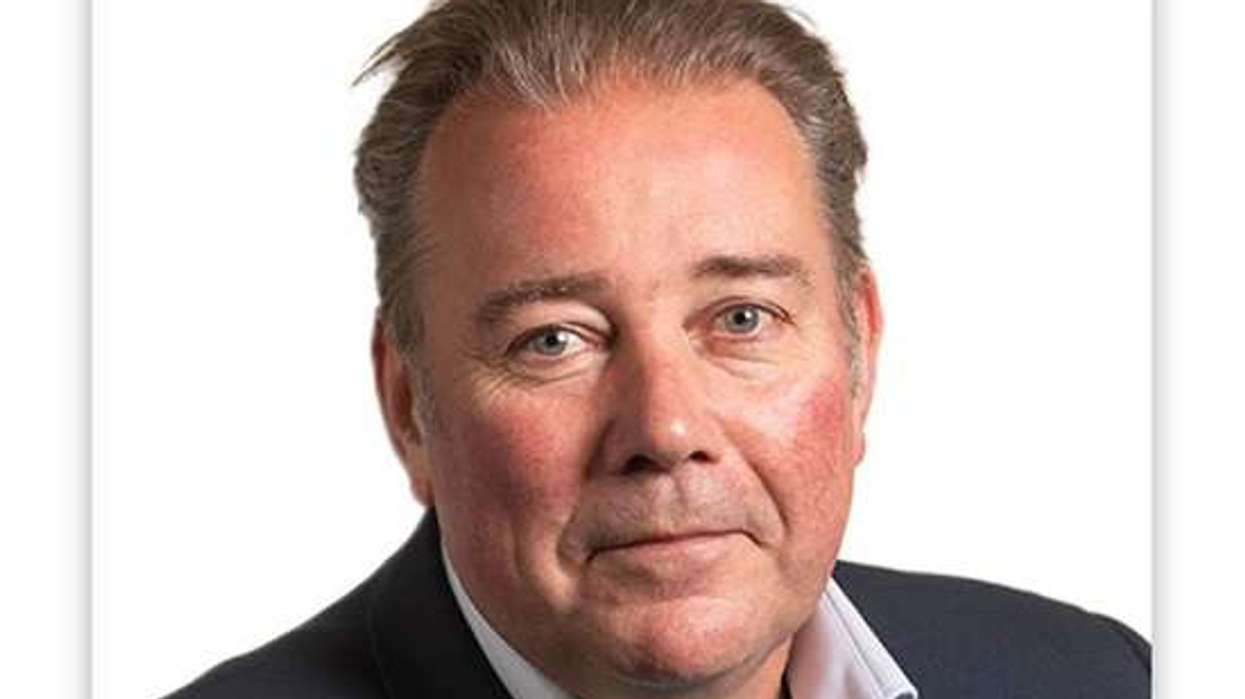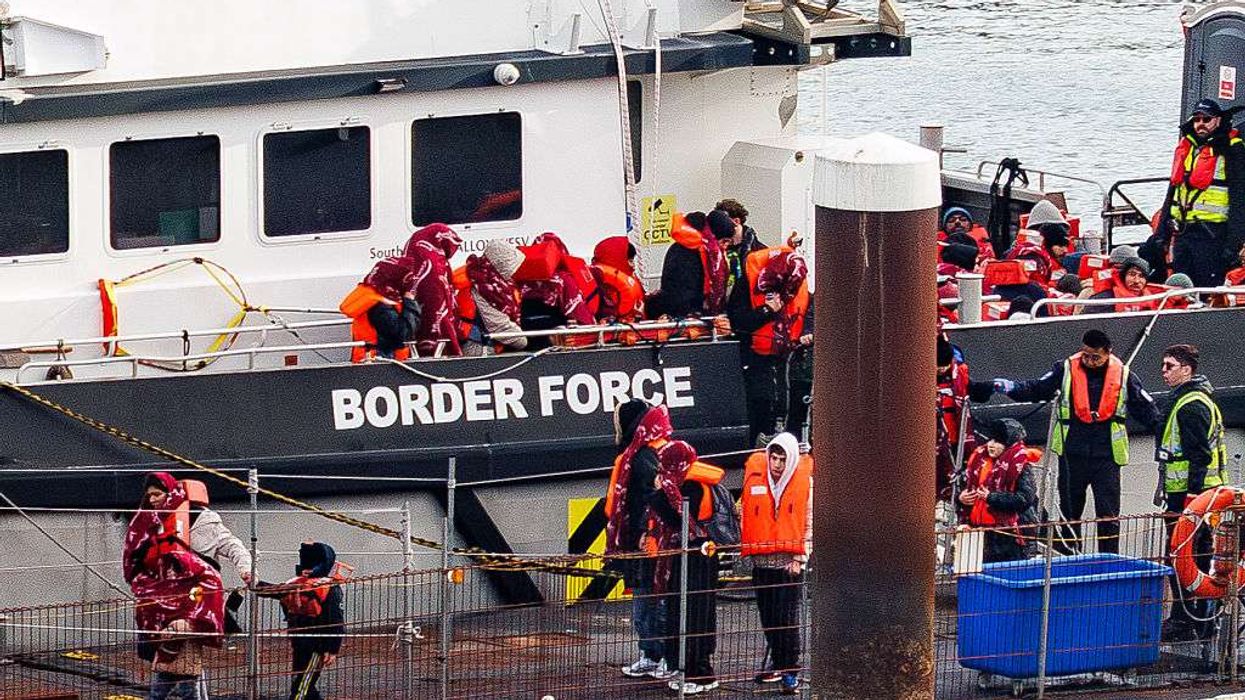NOW that he has been prime minister, what next for Rishi Sunak?
His wife, Akshata Murty, dropped a hint when she was interviewed along with her mother, Sudha Murty, for the long-running Relative Values slot in the Sunday Times.
“Rishi and I are now in the next phase of our journey,” said Akshata, who is setting up a private office with her husband to promote education initiatives.
“We’re passionate about education and we’re exploring ideas together,” she explained. “We want to pass on values and opportunities not just to our children but to as many young people as possible.”
It’s made clear that neither she nor Rishi were born to wealth. They met as students at Stanford University.
“One of the first conversations I had with Rishi when we met aged 24 was how much he loved the UK – he wanted other young people to have the same experiences that transformed his family,” recalled Akshata.
“That was it for me,” she went on. “I fell in love on the spot. He was definitely not the cool kid on campus. He was nerdy, he bought his clothes from Oxfam and drove a second-hand Volkswagen.”
She also remembered a conversation with the man she would marry: “Rishi said to me early on, ‘This is only going to work if you are happy to make the UK your home.’ I remember calling my mum and saying, ‘Rishi’s not like the other guys. He talks about the UK all the time.’”
When they met, they went on a long walk and she quizzed him on his Punjabi parents’ journey from India via Africa to the UK, and on his passion for nation-building.
“My mother thought he came across as serious, but she was struck by his academic mind and his honesty.”
As prime minister, Rishi was continually accused by his critics, even by people like Nadine Dorries in his own party, for being so rich that he was out of touch with ordinary voters. They focused on his suits and shoes, and predicted that as soon as the general election was over, he would quit Britain for a home in sunny California.
Rishi has committed himself to remaining the MP for Richmond in Yorkshire for the term of this parliament. But it is not clear he will want to be a backbench MP after the next general election, which the Tories might not even win.
He has joined Oxford University’s Blavatnik School of Government as a member of the World Leaders Circle and a Distinguished Fellow.
The circle is a global network of former heads of government, a forum to exchange ideas and foster international collaboration among leaders.
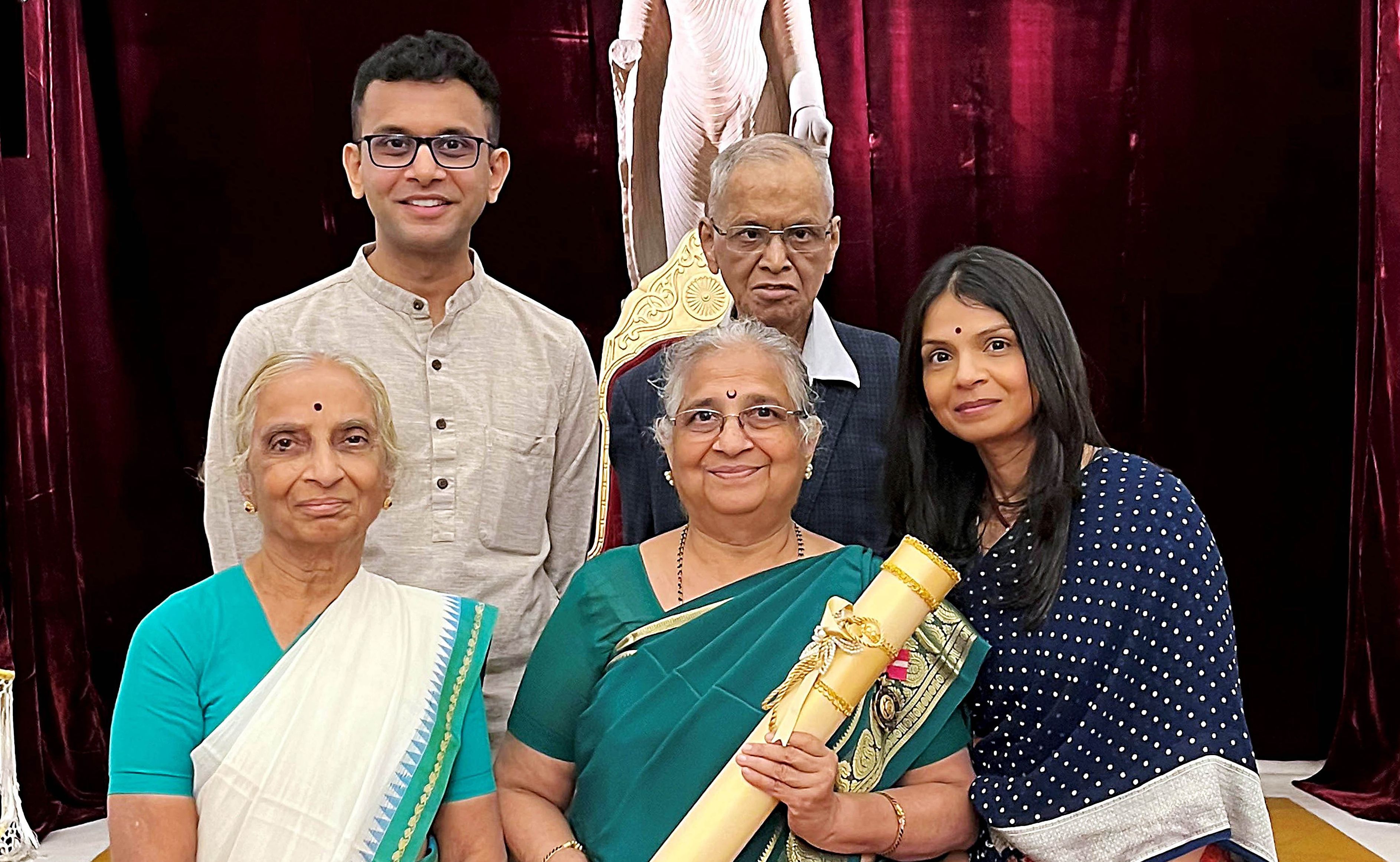
After Winchester College, where he was head boy for a term, Rishi read PPE (philosophy, politics and economics) at Lincoln College, Oxford – he took a First – and then earned a Master of Business Administration from Stanford University in California as a Fulbright Scholar.
Oxford’s chancellor-elect, Lord William Hague, welcomed the appointment of Rishi, who succeeded him as the Tory MP for Richmond in 2015.
Hague, who was Tory leader but never made it to Downing Street, said: “His experience as prime minister and chancellor and his deep understanding of the challenges facing governments today will be a huge asset to the school’s work… I have no doubt his insights will inspire the next generation of leaders who are starting their journey here at Oxford.”
In response, Rishi said: “I’m delighted to be joining the Blavatnik School of Government at Oxford and the Hoover Institution at Stanford. Both Blavatnik and Hoover do superb work on how we can rise to the economic and security challenges we face, and seize the technological opportunities of our time.
“I have huge affection for both Oxford and Stanford. I was fortunate enough to study at both. They shaped my life and career, and I look forward to contributing to their world-leading research in the months and years ahead.”
The phrase – “months and years ahead” – suggests he is not thinking of uprooting to California. Also, though still only 44, he has not expressed any desire – unlike Boris Johnson – of wanting to return to Downing Street.
Akshata told the Sunday Times: “The basis of my relationship with Rishi is the same as that of my parents. I saw in him someone who cared deeply about things where others didn’t. He was an incredibly well-meaning, big-hearted, geeky young man who was very similar to my dad.”
Her father, NR Narayana Murthy, was one of the founders of Infosys.
“My dad had a vision of putting post-independence India on the global map and my mother supported him,” said Akshata. “Mum sacrificed everything for dad’s dream of building a new India.”
Akshata has been bequeathed shares in Infosys by her father. This, added to Rishi’s personal savings, accounts for why they were valued at £720 million in Eastern Eye’s Asian Rich List last year. But they were still only 24th in the list of Britain’s 101 wealthiest Asians. As her mother revealed, Akshata and her younger brother Rohan were also not born to wealth.
“My husband, (Narayana) Murthy, built an enormously successful Indian software company – but he couldn’t have done it without me putting bread on the table and raising the children,” Sudha emphasised. “I was the only girl in my engineering class at college and the teacher wasn’t keen to have me.
“The conditions were that I wore a sari, didn’t eat in the canteen or talk to the boys. There were no ladies’ toilets, so I would have to walk home.
“They thought I wouldn’t survive, but that first semester I got a gold medal,” she continued. “After that, the boys respected me – and I realised that with hard work and knowledge, you can conquer anything. After school I was the first woman on the factory floor at Telco, India’s largest car manufacturer.
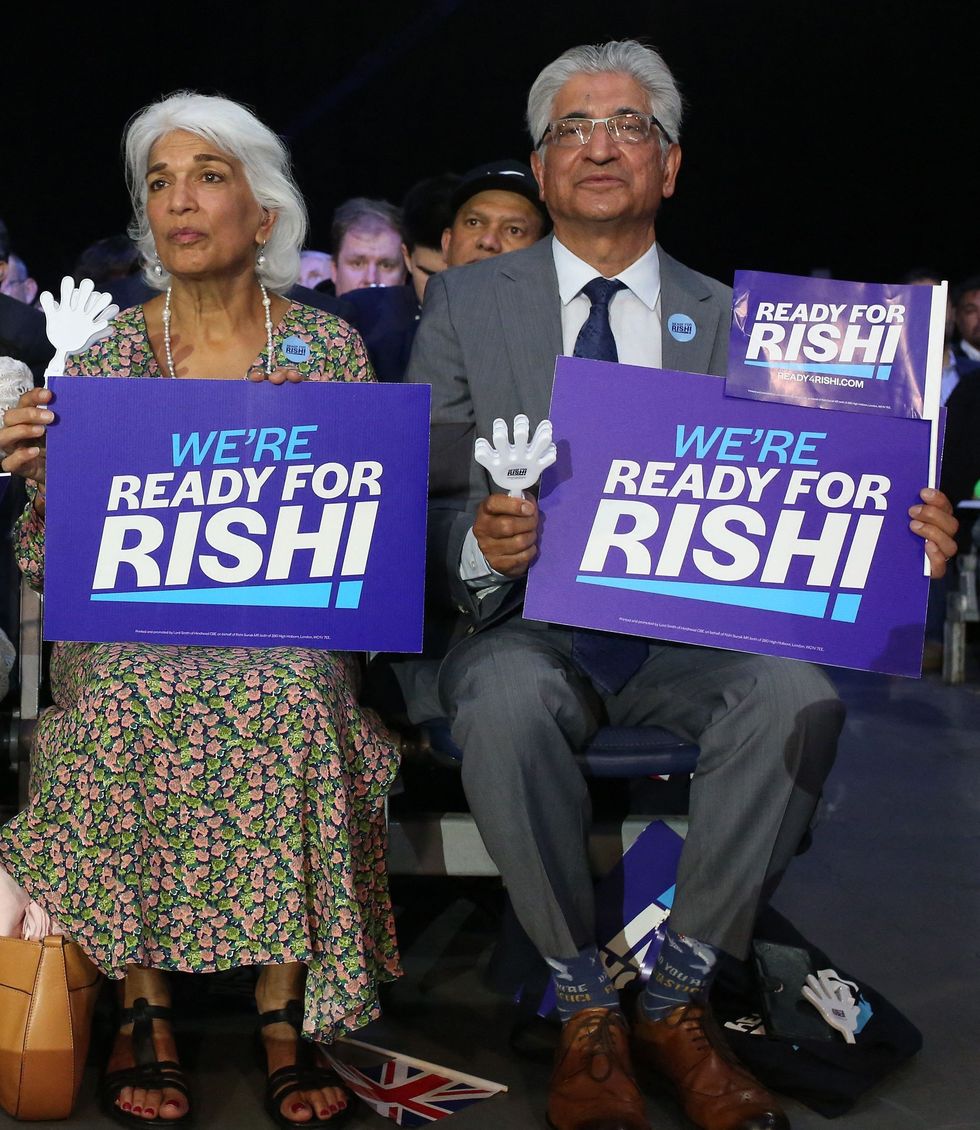
“My mother always said women need a secret savings account. When Murthy and I married in 1978, I lent him `6,000, about £400, from mine, so he could start his company, Infosys, with six colleagues in a room in our house in Pune.
“Infosys made a policy that family members should not work in the company, to avoid conflict of interest, so I couldn’t join. I did the accounts, and if the programmer didn’t come, I was a programmer. Sometimes I was a driver – my husband doesn’t drive.
“Of course I was upset not to be part of it. For two or three years it was so, so hard, but somebody had to bring in a salary, so I stayed on at Telco.
“Maternity leave didn’t exist for women in India, so after Akshata was born, I flew from Pune with my 90-day-old baby to Hubli, and left her with my mother. I said, ‘From today, you are her mum.’
“It was incredibly painful – I cried every day and every night. But I had to do it. Nothing in life is free. For everything there is a price, except mothers’ love.
“Every two months I would take a bus for eight or nine hours to see my baby, but Akshata didn’t want to come to me. She thought my mother was her mother and I was her aunt. My sister kept a log – when she sat up, when she talked. When Akshata’s brother, Rohan, was born three years later, I said, ‘Enough.’ I left my job, and took up writing novels and teaching computer science.”
Sudha said: “Akshata and Rohan grew up simply with us in a twobedroomed house in Bangalore [now Bengaluru], where we had moved from Pune. Birthdays were not big celebrations. I sent their birthday money to hospitals to buy equipment. They didn’t like it, but I knew one day they would understand. The steel instrument trays that Akshata’s money bought are still used in the government hospital 40 years later.”
